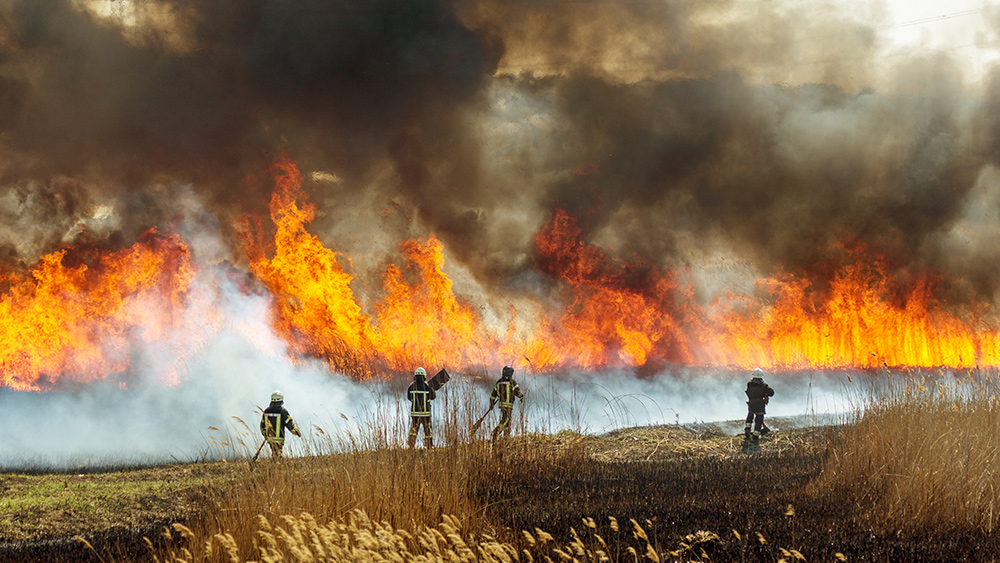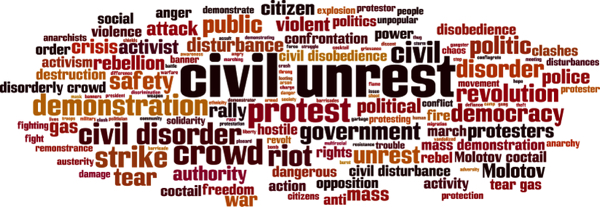© Brighteon.com All Rights Reserved. All content posted on this site is commentary or opinion and is protected under Free Speech. Brighteon is not responsible for comments and content uploaded by our users.
Cattle Rancher Warns About the Meat You're Buying (Shad Sullivan with Patrick Bet-David)
172 followers
Follow
17
Share
Report
9609 views • 11/07/2021
https://articles.mercola.com/sites/articles/archive/2021/11/06/coronavirus-meat-industry.aspx?ui=db1c8443091da8e5adafcb987fb464e0897952a7a94345dffa47df648a2295a5&;sd=20120913&cid_source=dnl&cid_medium=email&cid_content=art3HL&cid=20211106&mid=DM1036221&rid=1314360201
https://www.youtube.com/watch?v=m8ioFjN7viY&;t=133s
American cattle rancher Shad Sullivan from North Texas was interviewed by host Patrick Bet-David about the future of the cattle and beef industry
Sullivan received an email from the USDA in April 2020, stating that it would help farmers to find alternative markets for their harvests, as COVID-19 caused meat processing plants to shut down
If alternative markets couldn’t be found, state veterinarians and government officials would assist with culls, or depopulation, of the animals; meanwhile, the U.S. continues to import beef from other countries
Due to the allowance of acquisitions and mergers, four companies — Tyson, Cargill, JBS and National Beef, which is owned by Marfrig Global Foods — control 85% of the U.S. beef supply
There are now 727,906 beef farms and ranches in the U.S. In 1979, Sullivan says, there were 1.2 million to 1.3 million; he believes that due to the COVID-19 pandemic, one-third of the remaining beef farms and ranches in the U.S. may disappear after 2020 — maybe more
This article was previously published January 2, 2021, and has been updated with new information.
In the video above, American cattle rancher Shad Sullivan from North Texas is interviewed by host Patrick Bet-David about the future of the cattle and meat industry.
In April 2020, Sullivan posted a YouTube video1 discussing how U.S. farmers are being forced to dump the food supply — plowing under vegetable crops, euthanizing millions of chickens, aborting sows and burying feeder pigs, and dumping milk by the hundreds of thousands of gallons. While YouTube has since taken down the video, it continues to be "live" on private websites.
In the video, Sullivan says officials from the U.S. Department of Agriculture were also preparing farmers to depopulate cattle that were ready to harvest due to a "bottleneck created by the effects of COVID and the logistics therein." Yet, while preparing U.S. cattle ranchers to cull their herds, the U.S. was actively importing beef from other countries.
The first shipment of beef from Namibia, for instance, arrived in the U.S. in April 2020, prompting Sullivan to ask, "Am I the only one that sees a problem in this? … We are importing beef from other countries. Beef that is less regulated than our beef, less safe, not as high-quality of product, and yet, it's happening. At the same time, they're preparing for us to euthanize our harvests."2
USDA Email Told Farmers It Would Assist in Depopulation
Sullivan received an email from the USDA in April 2020, stating that it would help farmers to find alternative markets for their harvests, and if that couldn't be done, state veterinarians and government officials would assist with culls, or depopulation, of the animals.
In May 2020, the USDA announced that its Animal and Plant Health Inspection Service (APHIS) had established a National Incident Coordination Center that would support producers who could not move their animals due to the closing of processing plants because of COVID-19.
"Going forward," the announcement stated, "APHIS' Coordination Center, State Veterinarians, and other state officials will be assisting to help identify potential alternative markets if a producer is unable to move animals, and if necessary, advise and assist on depopulation and disposal methods."3
As processing plants shut down across the U.S. near the beginning of the pandemic, farmers were forced to euthanize hundreds of thousands of animals, a waste of meat during a time when many were struggling to find food, and a sentence that caused emotional and economic damage to farmers.
Because the processing is concentrated into a small number of large facilities, a U.S. government statement noted at the time, "[C]losure of any of these plants could disrupt our food supply and detrimentally impact our hardworking farmers and ranchers."4
The government also cited statistics that closing one large beef processing plant could lead to a loss of more than 10 million servings of beef in a day, and noted that closing one processing plant can eliminate more than 80% of the supply of a given meat product, such as ground beef, to an entire grocery store chain.5 These highlight the glaring problems that come along with a highly concentrated and centralized food system.
Also...
Four Companies Control 85% of the Beef Cattle Supply Chain
Product of the USA Doesn't Mean It's From the US
It's Nearly Impossible for Next Generation to Raise Cattle
Regenerative Farming Has Saved Farmers
https://www.youtube.com/watch?v=m8ioFjN7viY&;t=133s
American cattle rancher Shad Sullivan from North Texas was interviewed by host Patrick Bet-David about the future of the cattle and beef industry
Sullivan received an email from the USDA in April 2020, stating that it would help farmers to find alternative markets for their harvests, as COVID-19 caused meat processing plants to shut down
If alternative markets couldn’t be found, state veterinarians and government officials would assist with culls, or depopulation, of the animals; meanwhile, the U.S. continues to import beef from other countries
Due to the allowance of acquisitions and mergers, four companies — Tyson, Cargill, JBS and National Beef, which is owned by Marfrig Global Foods — control 85% of the U.S. beef supply
There are now 727,906 beef farms and ranches in the U.S. In 1979, Sullivan says, there were 1.2 million to 1.3 million; he believes that due to the COVID-19 pandemic, one-third of the remaining beef farms and ranches in the U.S. may disappear after 2020 — maybe more
This article was previously published January 2, 2021, and has been updated with new information.
In the video above, American cattle rancher Shad Sullivan from North Texas is interviewed by host Patrick Bet-David about the future of the cattle and meat industry.
In April 2020, Sullivan posted a YouTube video1 discussing how U.S. farmers are being forced to dump the food supply — plowing under vegetable crops, euthanizing millions of chickens, aborting sows and burying feeder pigs, and dumping milk by the hundreds of thousands of gallons. While YouTube has since taken down the video, it continues to be "live" on private websites.
In the video, Sullivan says officials from the U.S. Department of Agriculture were also preparing farmers to depopulate cattle that were ready to harvest due to a "bottleneck created by the effects of COVID and the logistics therein." Yet, while preparing U.S. cattle ranchers to cull their herds, the U.S. was actively importing beef from other countries.
The first shipment of beef from Namibia, for instance, arrived in the U.S. in April 2020, prompting Sullivan to ask, "Am I the only one that sees a problem in this? … We are importing beef from other countries. Beef that is less regulated than our beef, less safe, not as high-quality of product, and yet, it's happening. At the same time, they're preparing for us to euthanize our harvests."2
USDA Email Told Farmers It Would Assist in Depopulation
Sullivan received an email from the USDA in April 2020, stating that it would help farmers to find alternative markets for their harvests, and if that couldn't be done, state veterinarians and government officials would assist with culls, or depopulation, of the animals.
In May 2020, the USDA announced that its Animal and Plant Health Inspection Service (APHIS) had established a National Incident Coordination Center that would support producers who could not move their animals due to the closing of processing plants because of COVID-19.
"Going forward," the announcement stated, "APHIS' Coordination Center, State Veterinarians, and other state officials will be assisting to help identify potential alternative markets if a producer is unable to move animals, and if necessary, advise and assist on depopulation and disposal methods."3
As processing plants shut down across the U.S. near the beginning of the pandemic, farmers were forced to euthanize hundreds of thousands of animals, a waste of meat during a time when many were struggling to find food, and a sentence that caused emotional and economic damage to farmers.
Because the processing is concentrated into a small number of large facilities, a U.S. government statement noted at the time, "[C]losure of any of these plants could disrupt our food supply and detrimentally impact our hardworking farmers and ranchers."4
The government also cited statistics that closing one large beef processing plant could lead to a loss of more than 10 million servings of beef in a day, and noted that closing one processing plant can eliminate more than 80% of the supply of a given meat product, such as ground beef, to an entire grocery store chain.5 These highlight the glaring problems that come along with a highly concentrated and centralized food system.
Also...
Four Companies Control 85% of the Beef Cattle Supply Chain
Product of the USA Doesn't Mean It's From the US
It's Nearly Impossible for Next Generation to Raise Cattle
Regenerative Farming Has Saved Farmers
Keywords
FREE email alerts of the most important BANNED videos in the world
Get FREE email alerts of the most important BANNED videos in the world that are usually blacklisted by YouTube, Facebook, Google, Twitter and Vimeo. Watch documentaries the techno-fascists don't want you to know even exist. Join the free Brighteon email newsletter. Unsubscribe at any time. 100% privacy protected.
Your privacy is protected. Subscription confirmation required.





